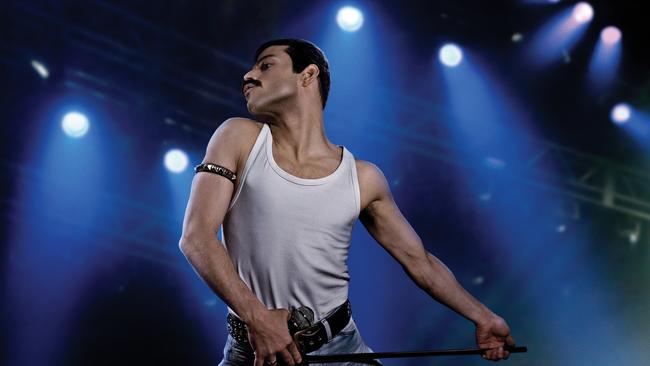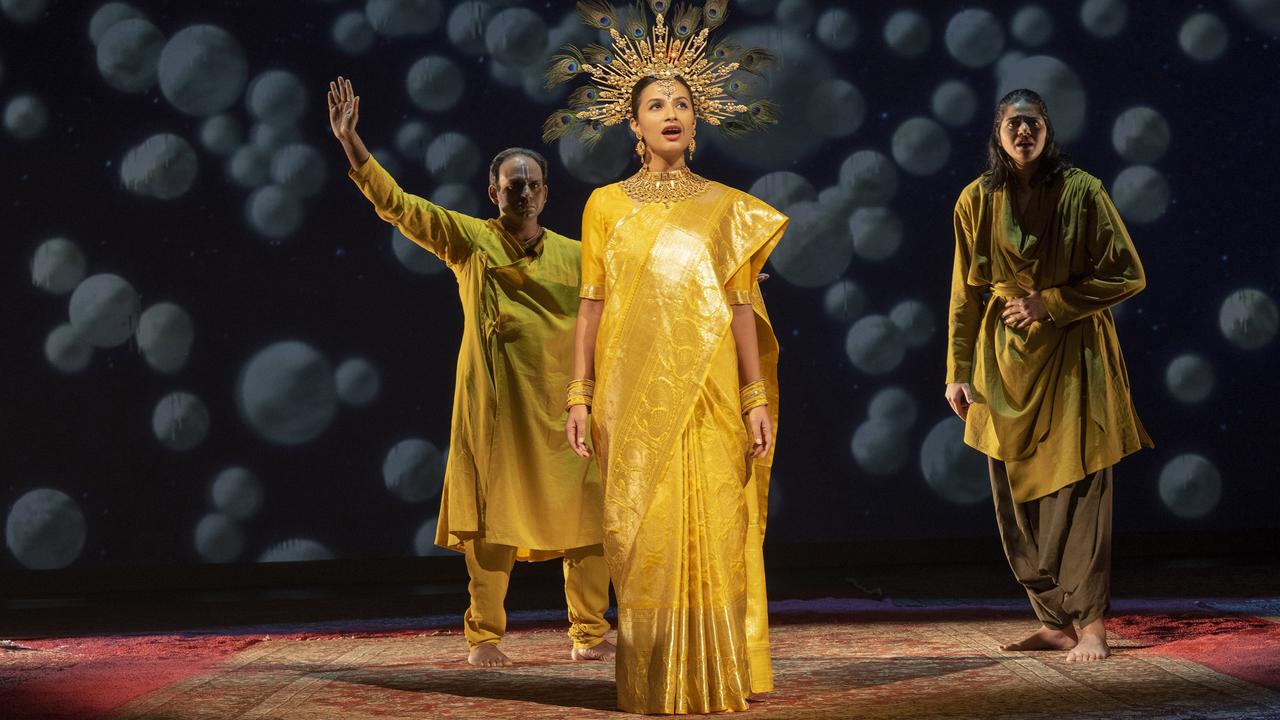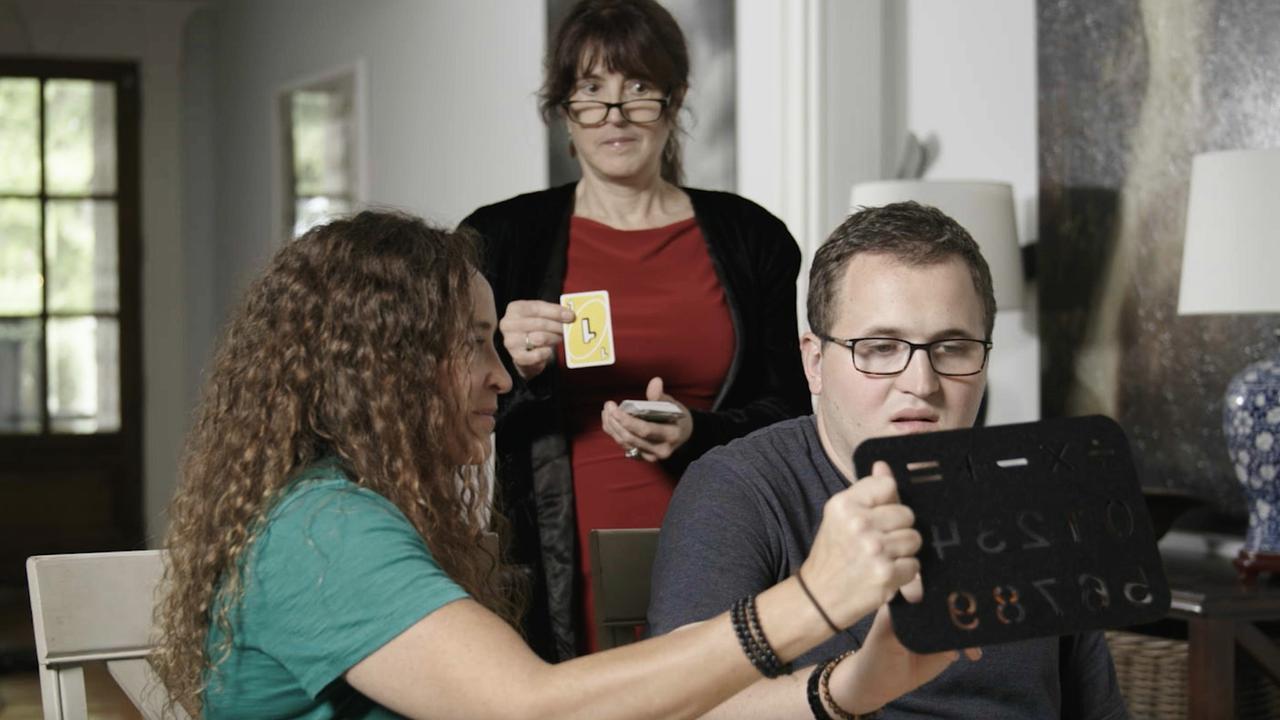Bohemian Rhapsody: a 10-star performance that will rock you
Critics have slammed Bohemian Rhapsody for “hiding” Freddie Mercury’s homosexuality. All I can say is, did they even watch it?

When it comes to who will be named best actor at the 91st Academy Awards, put down the glasses. American actor Rami Malek must win for being Freddie Mercury in Bryan Singer’s outstanding rock biopic Bohemian Rhapsody.
I can’t remember the last time I have been so gripped by an actor’s performance, from the first frame to the last. Malek, who worked with a movement coach and wore prosthetic teeth, is Freddie Mercury, frontman of the rock group Queen, from the overbite down. He does some of the singing, too, though actual Queen recordings, some of which have not been released before, dominate the soundtrack.
The scene where Farrokh/Freddie, before he adds Mercury, shyly rationalises his teeth — “More space in my mouth means more range” — would work as the Oscars night clip. So would lots of others: his quiet smile as he starts to write Bohemian Rhapsody, his unusual first gig with the pub band that would become Queen, his acerbic exchanges with an EMI executive (Mike Myers, who has some of the funniest lines), his late exchange with his strict father. He carries himself with such certainty, as a fragile yet self-confident man, someone who could be, as one of his bandmates says, a “total prick”, or someone who could rock the world.
Perhaps the most telling line comes from the personal manager who later sold out the star: “He’s still just a scared Paki boy,” he tells a television interviewer. Mercury was not from Pakistan. His parents were Parsis from what was then British India. Yet that observation, though wrong about his ethnic background, feels true.
Some commentators have criticised this movie for “hiding” Mercury’s homosexuality. All I can say in response is they must have seen a different movie to the one I saw.
When he and a trucker check each other out at an American gas station and then head into the gents together, I don’t think they are going there just to discuss the hit parade. It’s a deft, compelling scene. In a confrontation with his girlfriend (Lucy Boynton) he says he is bisexual. She responds, sympathetically, “You’re gay.”
He tongue-kisses men. That personal assistant arranges male one-night stands in their hundreds, and later talks about them. Mercury contracts AIDS, which as we all know killed him in 1991, aged 45.
What more do the critics want? Do they require to be taken into the gents to see the trucker fellate Freddy, or vice versa, to “reveal” his sexuality? If that did happen, I’m sure a different bunch of critics would protest about overt homosexual sex on the screen. Some people just need a reason to complain.
Mercury was not part of the gay pride movement. This is a movie about him as one of the greatest performers in rock ’n’ roll. It opens and closes with Queen’s astonishing performance in the Live Aid concert at Wembley Stadium in 1985. He is an outsider, a misfit. He chooses the band name Queen “because it’s outrageous and I can’t think of anyone more outrageous than me”. When singing, when performing, he is “exactly the person I was always meant to be”.
While this is a movie about Mercury, the other band members are not put in the background. It is not a hagiography. Ben Hardy is particularly good as drummer Roger Taylor. His multiple takes singing the “Galileo” bit in the recording of Bohemian Rhapsody are hilarious. It is clear the other band members were instrumental in the songs that made Queen.
The band had its troubles, particularly when Mercury walked out to start a solo career. There’s a life-imitating-art-imitating-life bit here, as although Singer is credited as the director, he was sacked before the movie was finished. English actor and filmmaker Dexter Fletcher, who was the initial director but left after disagreements, returned to finish the job.
Malik landed the lead role only after Sacha Baron Cohen quit the project and his suggested replacement, Ben Whishaw, decided not to take the role. I think it’s a case of third time lucky.
This is not a perfect movie. The script is a little limp in parts and the merging of real events into the film doesn’t always work. But such small problems are blown away by Malek’s 10-star performance. I left the cinema feeing a little bit like Freddie Mercury, which is remarkable, not least because I can’t sing a note.
When it come to rising stars, there’s another one in Wildlife, the directorial debut of acclaimed American actor Paul Dano.
Ed Oxenbould, a 17-year-old Sydneysider, is remarkable to watch. His presence has been noted at home and abroad: his movie debut was opposite Steve Carell and Jennifer Garner in Alexander and the Terrible, Horrible, No Good, Very Bad Day (2014). Back home he made Paper Planes (2015) alongside Sam Worthington and David Wenham. The same year M. Night Shyamalan cast him in the horror movie The Visit.
In Wildlife, based on the novella by Richard Ford, he is the 14-year-old son of a 30-something couple who in 1960 move to Great Falls, Montana, at the edge of the Rocky Mountains.
Mum (Carey Mulligan) and dad (Jake Gyllenhaal) have their difficulties. There seem to be barriers between them. Joe is old enough to have some idea of what is going on. It’s the first time I have seen Oxenbould play a boy on the cusp of adulthood, and he does it superbly.
The largely unseen character in this movie is a fire burning out of control in the mountains. In an early scene Joe, the new boy at school, takes notes as a ranger talks about fire safety. A schoolmate tells him not to bother. “If a fire ever gets to us,’’ she says, “it will be too late.” The same might be said of the flames inside people.
Joe’s dad, sacked from his job at the golf club, leaves the family and heads off to join the men fighting the fire. Joe’s mum responds in a way that soon makes it clear she’s not the buttoned-down wife and mother we first think she is. There’s a rich man in town (a brilliant, nuanced Bill Camp), who comes on the scene.
Joe sees it all. He’s uncertain and uncomfortable with what’s happening but doesn’t have the power to change it. Being based on a Ford novel, this is an interior movie, which became a factor in the casting. In one interview, Dano, who co-wrote the script with his actor-writer wife Zoe Kazan, said Oxenbould’s audition tape was one of the last ones he saw. He was the “only kid who could fill the space between the lines”.
“I never thought we would cast a kid from Australia in this very American film,’’ he said. “He’s a real actor.” Dano, a real actor himself, is dead right about that.
Bohemian Rhapsody (M)
4 stars
National release
Wildlife (M)
3.5 stars
Limited release



